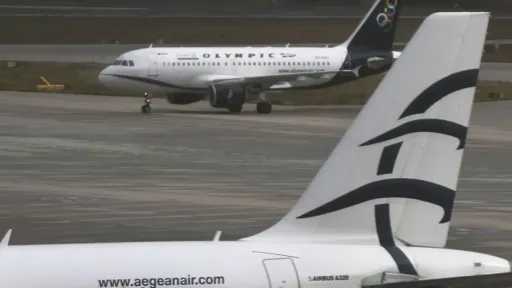Athens balances refugee, regional stakes

Athens is closely monitoring developments in Syria, acknowledging their broad regional implications. In the wake of the fall of the Assad regime, its strategy reflects a mix of humanitarian concern and calculated diplomacy, aiming to safeguard regional stability while asserting its influence.
Greece’s focus spans three areas: Syria’s internal stability, refugee dynamics, and its strategic positioning in the region.
The government aligns with the European Union’s stance, with the Foreign Ministry emphasizing the need for a smooth transition to a democratically legitimate government, based on United Nations Security Council Resolution 2254, under the clear condition of Syria’s territorial integrity and sovereignty.
Turkey’s growing role in the region is also not lost on Athens, as it extends from Ukraine and the Caucasus to the Middle East. Athens remains wary of how this dynamic may shape regional power balances.
On the refugee front, the situation presents a dual opportunity and challenge. While the fall of Bashar al-Assad may allow Syrian refugees to return, Greece is bracing for potential instability, especially if new conflicts emerge, such as with Kurdish groups. Greece was among the first to suspend asylum applications, a move later mirrored by Germany and Austria.
Greece’s involvement also aims to leverage its soft power as a predominantly Christian nation in the Eastern Mediterranean while maintaining a voice in regional developments.
Prime Minister Kyriakos Mitsotakis recently discussed the evolving situation with Patriarch John X of Antioch, pledging Greece’s readiness to assist. Foreign Minister George Gerapetritis engaged with counterparts in Lebanon and Jordan, emphasizing the protection of all Syrian citizens, including religious communities and cultural heritage sites.
Deputy Foreign Minister Alexandra Papadopoulou’s pre-arranged visit to Israel further highlighted Greece’s strategic role. Although her talks focused on bilateral relations, the Syrian crisis inevitably shaped the discussions, with Israel being a key player in the region.
Greek Defense Minister Nikos Dendias, speaking to EU ambassadors, underscored the cultural and historical stakes in the Middle East. “There are ancient populations in the broader region. There are monuments from the Justinian era and perhaps even earlier. It would be a tragedy to let them be destroyed. They are part of our shared European cultural identity,” he noted.
Kathimerini







